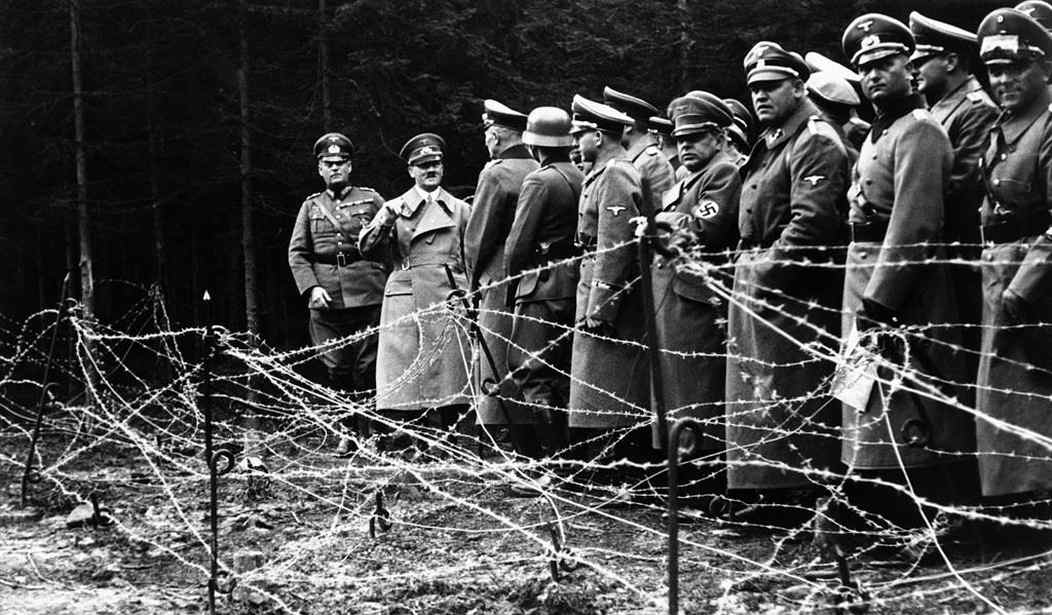In my book Hitler’s National Socialism, I examine the German dictator’s social and economic policy goals. What social, economic, and political objectives was he pursuing? Against previously accepted opinion, Hitler attached great importance to the social question. He wanted to solve the social question by improving the chances of advancement for workers, by increasing social mobility. He was, my analysis of numerous public and private statements made between 1920 and 1944 demonstrates, a vehement proponent of “equal opportunity,” which, like all of his social and economic objectives, however, was only to be realized within the Volksgemeinschaft (German national community). Anyone who did not belong to this Volksgemeinschaft was persecuted, imprisoned in concentration camps, or murdered. But those who did belong, especially workers, were to have increased opportunities for social advancement in society.
A new elite was supposed to replace the bourgeoisie
Hitler was not concerned with the best possible development of each individual, but with the optimization of the benefit for the Volkgemeinschaft. For Hitler, the individual as such was unimportant. What was important was his function within and benefit to the national community, and this was best served, in Hitler’s view, if traditional class barriers were overcome and all Volksgenossen (national comrades) were given the opportunity to take part in the socio-Darwinistic battle for social advancement. In this way, Hitler hoped to form a new elite to replace the bourgeoisie.
Hitler primarily accused the bourgeoisie of an anti-social position: profit, greed, and undisguised materialism. By rejecting justified social demands, the bourgeoisie had driven the workers into the arms of the Marxist parties. Proletarian class consciousness was simply an understandable reaction to bourgeois class conceit. A central, constantly repeated accusation Hitler made against the bourgeoisie was weakness, lack of energy, and cowardice. Hitler saw the reason for this ‘cowardice’ in the bourgeoisie’s material living conditions, i.e. in that the bourgeoisie – as opposed to the working class – was a property-owning class and therefore lived in constant fear of the loss of their property. The accusation of ‘cowardice’ can only be understood within the context of Hitler’s socio-Darwinistic Weltanschauung. One of Hitler’s fundamental precepts was that, in the eternal battle of the stronger against the weaker, the weaker will finally be destroyed. In his view, this applied to individuals as well as to social groups and even whole nations. The bourgeoisie, he concluded, was at the end of its mission because of its cowardice, weakness, and lack of energy. This class was incapable of political leadership and had to be replaced by a qualified elite. Hitler hoped to establish this elite primarily from among the working class. For him, the workers were, as he stated, the “source of strength and energy.” He, therefore, concentrated his efforts primarily on gaining the support of the working class.
Recommended
One of the key objectives of his revolution was to ideologically upgrade manual labor and increase the social prestige of the worker. The increase of social prestige of the worker was not only to serve the objective of the better integration of this class; at least as important was Hitler’s intention to create the conditions for greater social mobility by relativizing traditional social status. The upgrading of manual labor was, as Hitler explained in Mein Kampf, the necessary condition for increasing the readiness of children from middle-class families to enter occupations of manual labor, and thereby simultaneously create the conditions for the social advancement of the children of workers.
Hitler’s objective was the creation of a “national community” in which class barriers were to be abolished. Existing traditions, “class conceit” and “class consciousness” were to be broken down by a process of continuous re-education. The process of ideological leveling was to be accompanied by an actual equalization in many sectors of life.
Hitler became an admirer of the Soviet planned economy
Even more important for Hitler than revolutionizing the social structure of society was the revolutionary restructuring of the economy. Hitler valued the economic principle of competition, which he defined as a special case of the socio-Darwinistic principle of selection and as the motor for continuous dynamic industrial progress. On the other hand, he also criticized economic liberalism according to which the common good resulted from private entrepreneurs’ pursuit of egoistic interests in the marketplace.
That Hitler recognized the legal form of private ownership does not mean much in view of the fact that he rejected the free entrepreneurial power of disposition over the means of production. This exemplified Hitler’s method, both in economics and in politics, of maintaining the outer form, such as the legal form of private ownership, but eroding the principles upon which it was built to such an extent that he was ultimately able to destroy it more effectively and with less opposition, than would have been possible by any other method.
In Hitler’s view, the entrepreneur was nothing more than a representative of the state and had to unconditionally fulfill the objectives it set. One of the most important means of reaching this objective was Hitler’s constant – open or veiled – threat of nationalization. If Germany’s entrepreneurs were incapable of achieving the objectives the National Socialist state had set, Hitler threatened time and again, then the state would take this task into its own hands. His actions in the case of the foundation of the Hermann-Göring-Werke and the Volkswagen Werke demonstrated that this was no empty threat.
The conflicts with business on the one hand and the successes achieved with the application of the system of business planning on the other led to an increasing radicalization of Hitler’s criticism of the system of free trade. In this, his admiration for the Soviet economic system played a large role. From his memorandum on the Four-Year Plan 1936, but also later from his so-called table talks with his inner circle and his remarks to his associates, it becomes clear that Hitler’s belief in the superiority of the Soviet over the capitalist economic system was an important motive for his enforced destruction of the system of free enterprise in Germany.
In the end, Hitler even considered the nationalization of important sectors of the German economy, such as the large public stock corporations, the power industry, and all other sectors which produced “raw materials necessary for survival.” The implementation of a system of planning was not only conditioned upon the necessities of rearmament and war. After the war, Hitler did not intend to reduce the scale of state intervention, but rather to extend the scope of the planned economy. As far as the planned direction of the economy was concerned, Hitler said, this was only the beginning.
Rainer Zitelmann is the author of the recently published book Hitler’s National Socialism https://hitlers-national-socialism.com/

























Join the conversation as a VIP Member